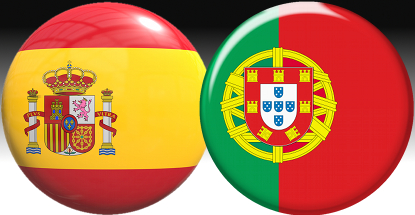 Spain’s regulated online gambling market got a boost in 2014 from sports betting, which helped push the overall market’s annual revenue up 11% to €254m. The figures were released this week by the Dirección General de Ordenación del Juego (DGOJ).
Spain’s regulated online gambling market got a boost in 2014 from sports betting, which helped push the overall market’s annual revenue up 11% to €254m. The figures were released this week by the Dirección General de Ordenación del Juego (DGOJ).
For the three months ending Dec. 31, overall online revenue rose 10.3% to €65.6m as gambling turnover rose 26% to €1.85b. Sports betting claimed €34.3m (+1.7%) of Q4’s total, while casino grew 8% to €11.1m and bingo was flat at €2m. Roulette captured 69% of casino revenue, well ahead of blackjack (29%) and baccarat (1.7%).
Poker revenue fell 3.5% to €16.6m, as a 28.7% rise in tournament poker revenue wasn’t enough to overcome a 20% fall in cash games. Cash game turnover fell 17% while tournament stakes rose 15%. (Similar patterns played themselves out in France, which saw cash games stakes fall 12% in Q4 and 14% for 2014 as a whole.)
The number of active Spanish player accounts rose 11% year-on-year but fell sequentially. Total number of registered accounts grew 12.5% to 382k. Licensed operators spent €20.1m marketing their wares, an increase of 3% year-on-year and 59% sequentially.
PokerStars Spanish-facing site has more to market following the recent relaunch of its casino offering. The casino games went offline a month ago so Stars’ boffins could tweak the software to record blackjack hand and roulette spin histories, as required by Spanish regulators. PokerStars.es has also expanded its casino offering via the launch of live dealer roulette.
PORTUGAL’S TAXING SITUATION
Across the border in Portugal, the country’s plans to tax its regulated online sports betting market have been slammed by the bean counters at PricewaterhouseCoopers (PwC). The Remote Gambling Association commissioned PwC to study the issue and the results have been duly submitted to Portugal’s economic officials.
Portugal is looking to end the online gambling monopoly held by Sana Casa de Misericordia but the government’s plan to tax sports betting turnover rather than revenue has operators crying foul. PwC says Portugal’s refusal to switch to a revenue-based tax will cause up to four-fifths of licensed operators to exit the country within the first year of its regulated market. This exodus is likely to cost Portugal €20m in lost tax revenue over the first three years.
PwC cited France as a glimpse of Portugal’s future. The French market’s onerous tax rates were cited as the primary culprit behind 18 of the country’s 35 online gambling licensees walking away from the market after the first year.
